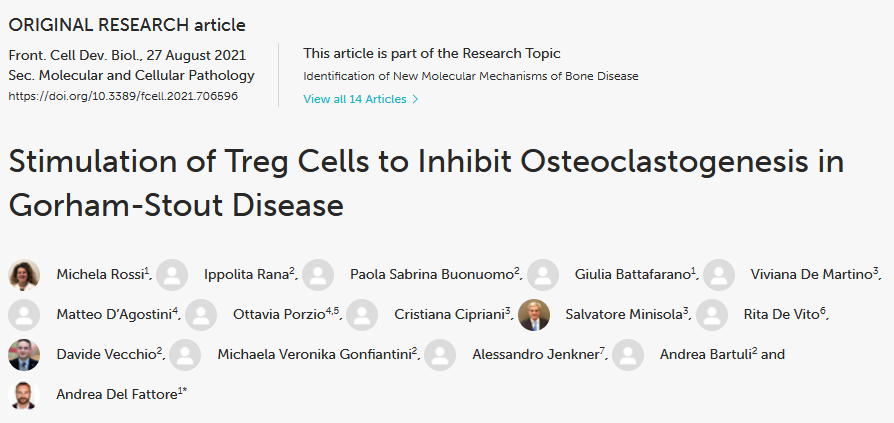Science & Research | December 5th, 2022
Stimulation of Treg Cells to Inhibit Osteoclastogenesis in Gorham-Stout Disease - Paper by ESPR Research Grant Awardee
We are excited to announce the research findings of the previous ESPR Post-Doc Research Grant Awardee, Davide Vecchio, have now been published.
Gorham-Stout disease (GSD) is a very rare syndrome displaying excessive bone erosion and vascular lesion. Due to the rarity of the disease and to the limited studies, its etiopathogenesis is not entirely known. The involvement of immune system in the progressive osteolysis was recently suggested. Indeed, extensive reciprocal interactions between the immune and skeletal systems have been demonstrated. This study aimed to evaluate alterations of immune cells in GSD. An increase of CD8+ cells and reduction of CD4+ and CD4+CD25+CD127low cells was revealed in patients. Interestingly, patients' regulatory T cells maintain the ability to respond to extracellular stimuli and to regulate osteoclastogenesis; GSD cells proliferate under aCD3/CD28 signal reaching similar levels to those observed in control culture and exert their immunomodulatory activity on effector T cells. GSD Treg cells preserved their inhibitory effects on the osteoclastogenesis. These results suggest that stimulation of Treg cells could open the way for the identification and testing of new therapeutic approaches for patients affected by GSD.
The paper can be accessed here.
To find out more about the ESPR Research Grant Programme, please click here.

